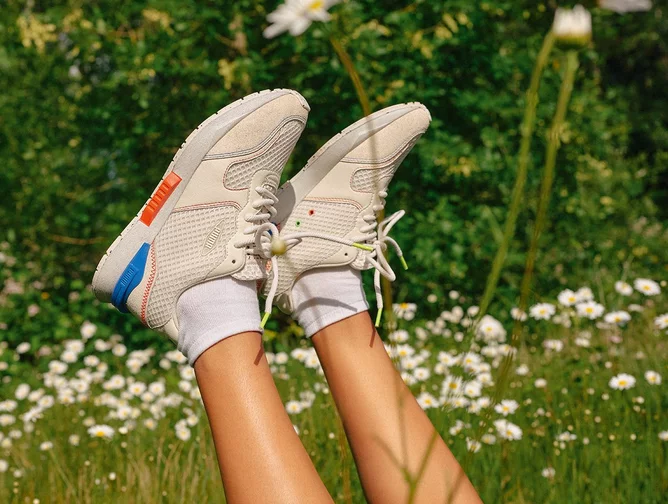
For sports company PUMA, becoming a more sustainable company is a constant journey, which involves all parts of its business. This attitude is best expressed in the name of its sustainability strategy: “Forever Better.”
PUMA made sustainability an important part of its strategy when it introduced its first Code of Conduct in 1993. A lot has changed since then. Today, more than ever before, consumers and retailers expect companies to be a part of the solution to the world’s environmental challenges and ask for more sustainable product initiatives and ways to decouple consumption from carbon emissions.
PUMA knows that it cannot become more sustainable by only focusing on a few individual collections, but it has to make an impact at scale. To achieve this, PUMA has set goals across 10 target areas such as climate change, circularity and plastics, which it aims to meet by 2025.
As a member of the Fashion Charter for Climate Action, PUMA wants to reduce its CO2 emissions by what scientists say is necessary to avoid the worst consequences of climate change.
Here the company recently announced some important results. Between 2017 and 2021, PUMA reduced its own carbon emissions worldwide (from offices, stores and warehouses) by 88% by buying renewable energy or renewable energy certificates and by moving its car fleet to engines without tailpipe emissions. In Los Angeles, PUMA introduced its first electric trucks to shift goods from the port to its warehouse in Torrance, California.
Despite its strong growth between 2017 and 2021, PUMA also managed to reduce the carbon emissions coming from its supply chain. The company achieved this by helping its suppliers source more renewable energy and by using more sustainable, and therefore less carbon intensive, materials.
The use of such materials is crucial to make more sustainable choices at scale. In 2021, PUMA expanded the use of recycled polyester to 55% in its Apparel products, as part of its strategy to use 75% recycled polyester in its Apparel and Accessories by 2025. It is also on track to remove plastic shopping bags from all of its stores this year.

By 2025, PUMA aims to have more sustainable components in 90% of its footwear. This includes developing recycled options for leather, rubber and polyurethane. The first repurposed leather materials were already introduced in PUMA’s RE:Gen collection in 2021.
But sustainability is not only about the production of new items. With the RE:SUEDE and RE:JERSEY projects, PUMA has also started two crucial experiments to explore ways to take more responsibility for the afterlife of its products. With RE:SUEDE, PUMA made an experimental version of its classic SUEDE sneaker with special materials such as biodegradable TPE and chromium-free leather. The RE:SUEDEs were distributed to 500 volunteers in Germany, who wore them for six months before returning them to PUMA. The company will now establish with a recycling partner, whether the RE:SUEDE can biodegrade in a controlled industrial setting.
With RE:JERSEY, PUMA trialed a chemical recycling process to turn old polyester jerseys into new products. With this process, PUMA can filter out colors and other impurities to create a recycled polyester yarn with the same performance characteristics as virgin polyester. PUMA plans to scale up chemical recycling in the coming years.
In September 2022, PUMA hosted its first “Conference of the People.” At this event in London, PUMA invited industry peers, experts and NGOs to meet with representatives of Gen Z to discuss some of the fashion industry’s most pressing sustainability challenges such as waste, materials and climate change.
Because of all of these efforts, PUMA was named the most sustainable brand in the industry according to Business of Fashion, which ranked the 30 largest companies in the fashion business.
PUMA is proud of the progress it has made with regards to sustainability over the past decades. However, the company is also well aware that much remains to be done to become even more sustainable and to be “Forever Better.”
Source Sustainability


